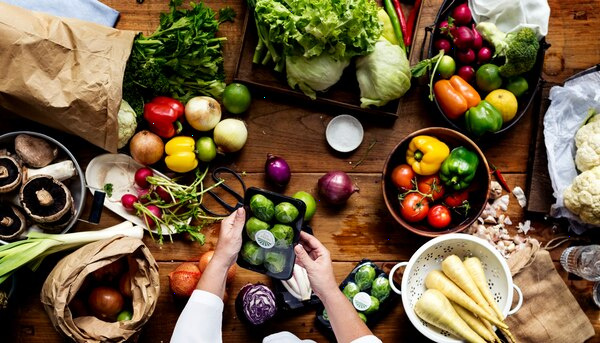Top 10 Organic Foods You Should Incorporate into Your Diet
In recent years, organic foods have surged in popularity as more people seek healthier, non-toxic alternatives to conventionally grown produce. Organic farming avoids synthetic pesticides and fertilizers, and often employs more environmentally sustainable practices. Incorporating organic foods into your diet can yield numerous health benefits while supporting ecological balance. Here are ten organic foods you should consider adding to your shopping list:
- Apples Apples frequently rank high on the Environmental Working Group's (EWG) "Dirty Dozen" list due to their high pesticide load. Organic apples are not only free of these chemicals but also packed with antioxidants, fiber, and essential vitamins. Enjoy them as a snack, in salads, or as a natural sweetener in recipes.
- Spinach Leafy greens, particularly spinach, can be a magnet for pesticide residues. Opt for organic spinach to enjoy its rich supply of iron, calcium, and vitamins A, C, and K without the added toxins. Incorporate it into smoothies, salads, or as a side dish to boost your nutrient intake.

- Strawberries Strawberries are another fruit commonly found on the "Dirty Dozen" list due to their susceptibility to chemical treatments. Organic strawberries not only taste sweeter but are also packed with antioxidants, manganese, and vitamin C. Enjoy them fresh, in desserts, or as a topping for cereals and yogurts.
- Carrots Carrots are a versatile vegetable rich in beta-carotene, fiber, and various vitamins and minerals. Choosing organic carrots ensures that you avoid consuming harmful pesticides. They can be eaten raw, steamed, roasted, or used in soups and stews.
- Tomatoes Organic tomatoes boast a richer flavor and are higher in antioxidants like lycopene, which have anti-inflammatory properties. They are a versatile addition to numerous dishes, from salads and sandwiches to sauces and soups.
- Potatoes Conventionally grown potatoes often contain one of the highest pesticide levels among vegetables. Organic potatoes are not only healthier but also come in a variety of types, each brimming with essential nutrients like potassium, vitamin C, and fiber. Use them in mash, fries, or baked dishes.
- Bell Peppers Organic bell peppers are free from the synthetic pesticides that conventional peppers often carry. These colorful vegetables are rich in vitamins A and C, as well as antioxidants. They can be eaten raw, stuffed, grilled, or added to stir-fries.
- Kale Known for its superfood status, kale is packed with vitamins A, C, and K, calcium, and antioxidants. Organic kale ensures you avoid consuming harmful chemicals. Add it to salads, smoothies, or as a crispy roasted snack.
- Grapes Grapes can harbor heavy pesticide residues, making organic options a better choice. These fruits are rich in vitamins C and K, and contain potent antioxidants like resveratrol. Enjoy them fresh, dried as raisins, or in juices and salads.
- Chicken Organic, free-range chicken is raised without antibiotics or synthetic hormones, making it a healthier protein source. It also often has better taste and texture compared to conventionally raised poultry. Use it in a wide array of dishes, from grilled chicken salads to hearty soups and stews.
Incorporating these organic foods into your diet can significantly decrease your exposure to harmful pesticides and chemicals while quadrupling your nutrient intake. Whether you're making small changes or fully transitioning to an organic lifestyle, these ten foods are an excellent starting point. Remember, investing in organic not only nourishes your body but also supports sustainable farming practices that are kinder to our planet.